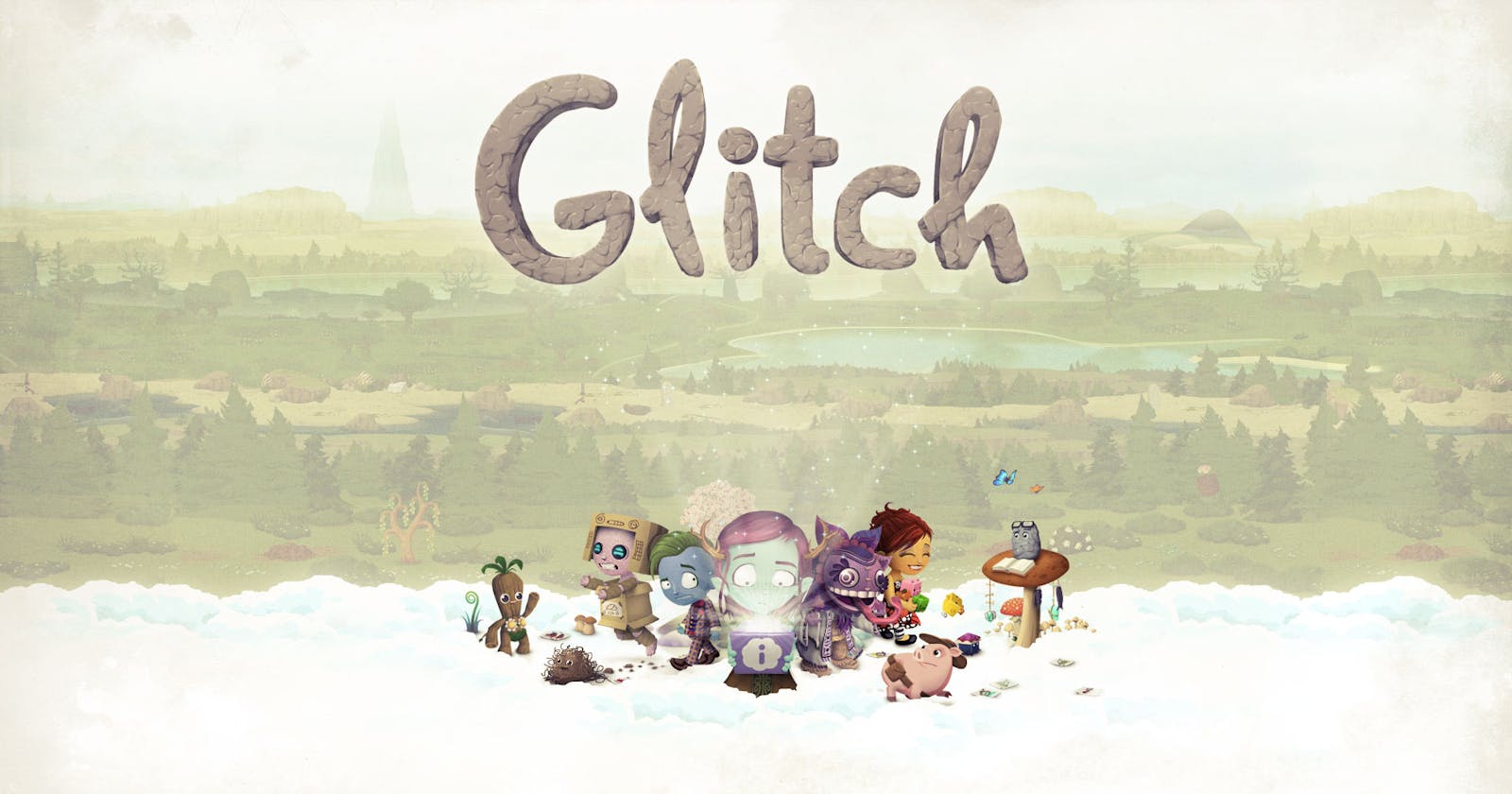I will go through a summarized story of a well-known startup and share my notes from this lesson.
You can read this blog post with a piece of smooth jazz:
First Attempt: Game Neverending
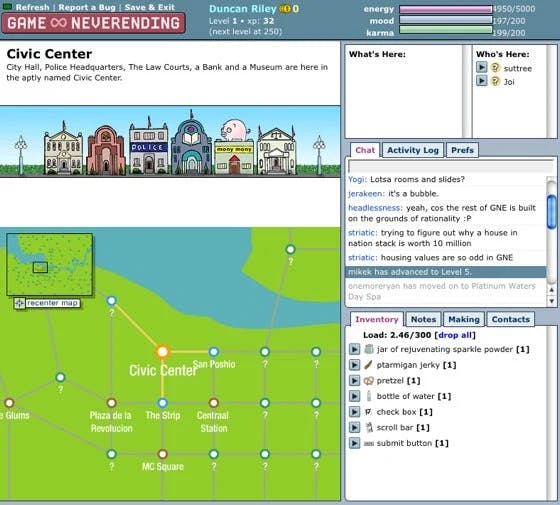 Stewart Butterfield, co-founder of a gaming company Ludicorp is developing a browser-based multiplayer online game with his team in 2002.
Stewart Butterfield, co-founder of a gaming company Ludicorp is developing a browser-based multiplayer online game with his team in 2002.
The game has a simple but brave concept of the time:
- Craft objects
- Manipulate objects for humor
- Socialize with others through embedded chat; send messages & images etc.
There is no way to win in this game, you just enjoy playing with others: "Game Neverending". But it could not hold on for very long.
End of Life: Game Neverending
The game reached its end of life in 2004. But the team kept one of the tools they used for internal communication of the game.
Second Attempt: Flickr
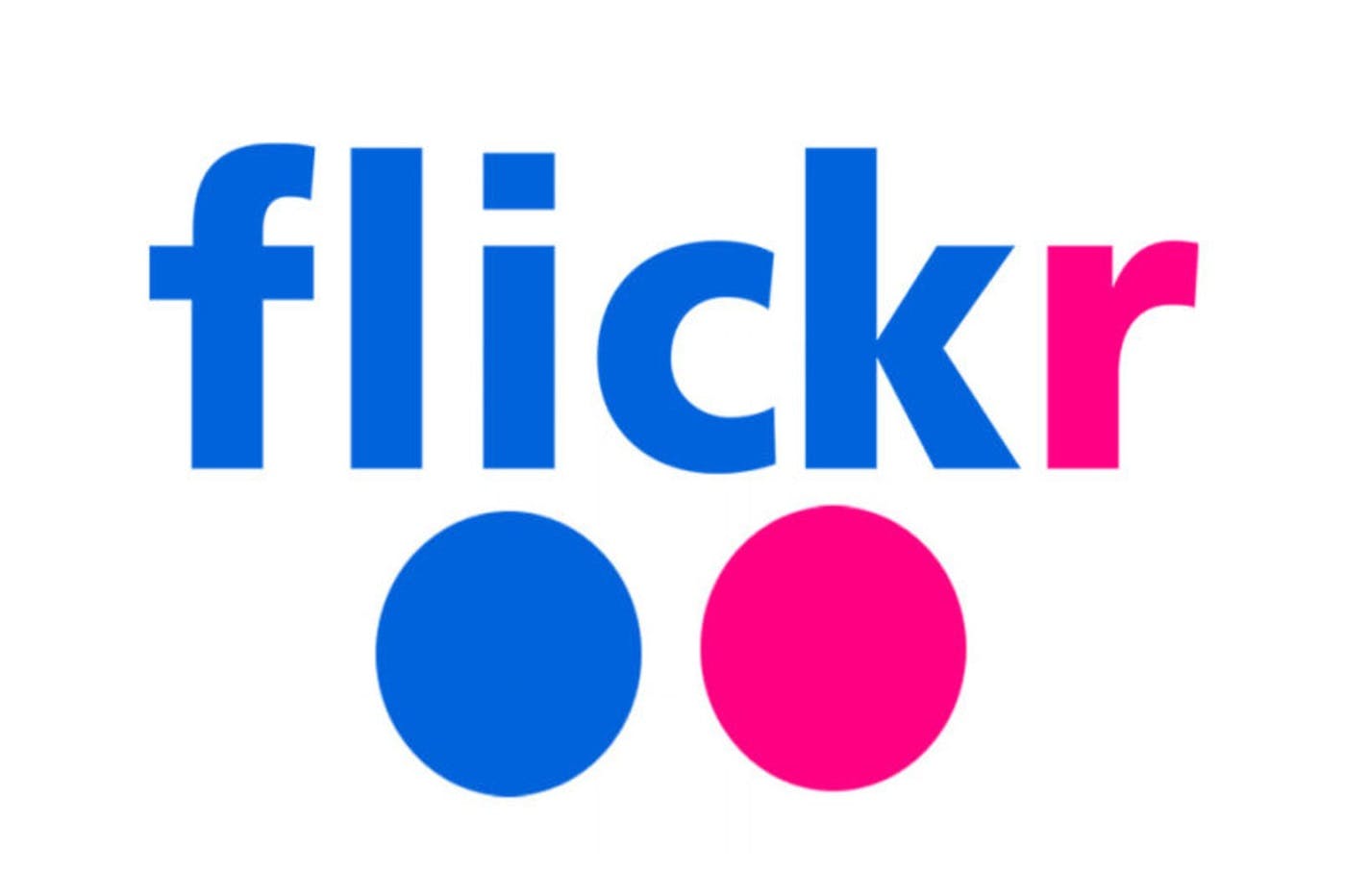 Players were uploading their images and sharing them with each other in the Game Neverending. The team evolved this tool into a new service: Flickr.
Players were uploading their images and sharing them with each other in the Game Neverending. The team evolved this tool into a new service: Flickr.
Flicker launched as an image hosting service where you can upload, tag & group, and share your images. Google's Blogger was popular also at that time but it was not allowing you to store images which redirects people to upload their image's on Flicker to share in their blog posts.
This exploded the growth of Flickr and it took the attention of global companies.
Sold to Yahoo!: Flickr
 Yahoo acquired Flickr and also the team Ludicorp in 2005 for $25m-but some sources mention it as $35, could not verify the exact number-
Yahoo acquired Flickr and also the team Ludicorp in 2005 for $25m-but some sources mention it as $35, could not verify the exact number-
But this giant corporate did not go well for the entrepreneurial spirit. Stewart left Yahoo in 2008 with an interesting letter full of metaphors.
Third Attempt: Glitch
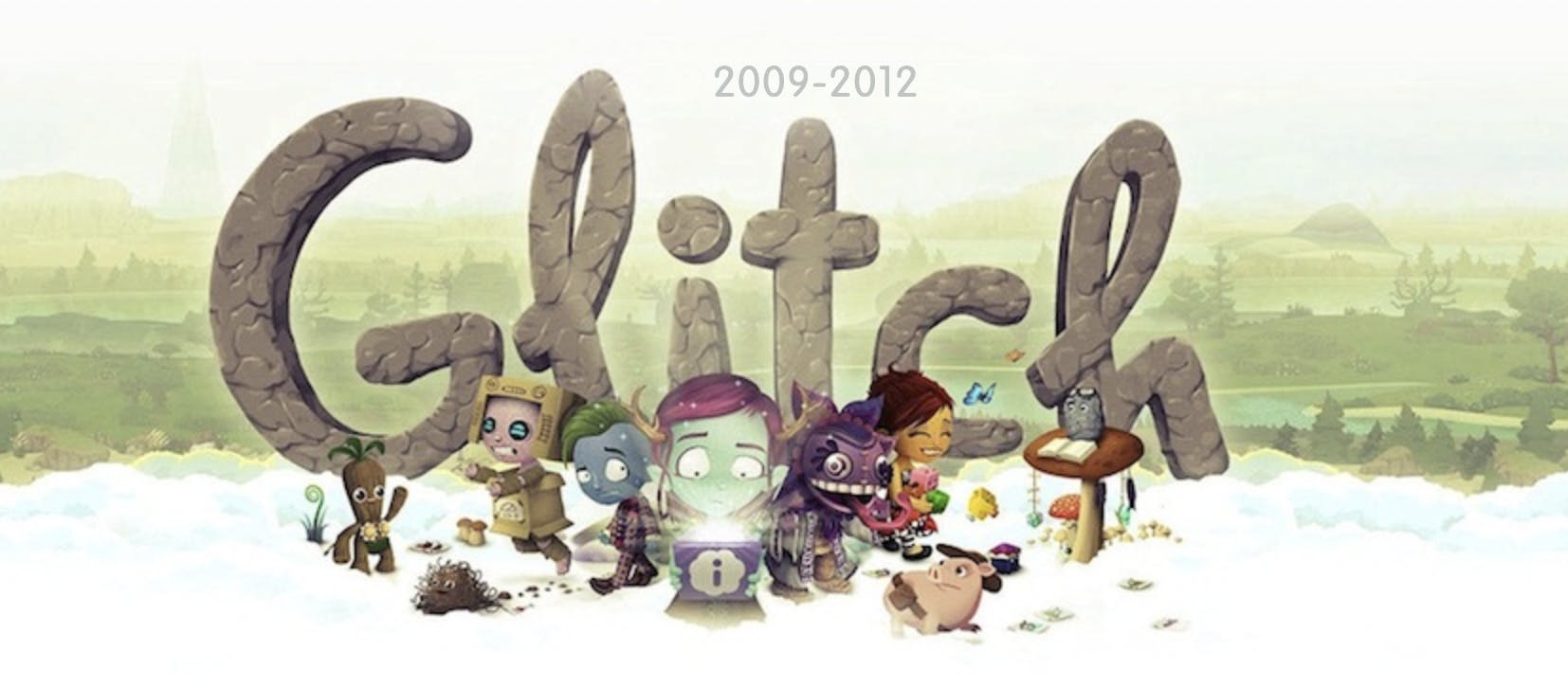 Stewart Butterfield back in school, created a game company, Tiny Speck, to continue where he left from. Because now he and his team are well known by investors it is founded easily $5M in 2010 and $10M in 2011.
Stewart Butterfield back in school, created a game company, Tiny Speck, to continue where he left from. Because now he and his team are well known by investors it is founded easily $5M in 2010 and $10M in 2011.
The game: Glitch, has a very similar concept to the Game Neverending with fantasy characters and improved user experience. It is again a MMORPG (massively multiplayer online role-playing game) backed by Adobe Flash Player.
Team also developed an internal communication tool which was necessary for their working culture. Developers were spread across the country and they need an asynchronous & effective communication way. Also, all communication should be visible to everyone in the team where a solution to the topic would be quicker than the traditional email-cc-forward-reply cycle. We will talk about this later.
End of Life: Glitch
Again, the game did not do well from the business perspective and announced its closing in 2012.
In his interview Stewart mentioned a couple of reasons for the failure:
- Hard to attract the attention of new players
- Mobile usage is spreading which means rough times for Browser based games
- Limited budget to switch infrastructure from Flash to Mobile
I verified customer behavior also from statcounter for desktop vs mobile usage between 2012-2021. The year Glitch is the end of life was the last moment for the dominance of the browser-based game and then mobile usage is spreading around the world regularly.
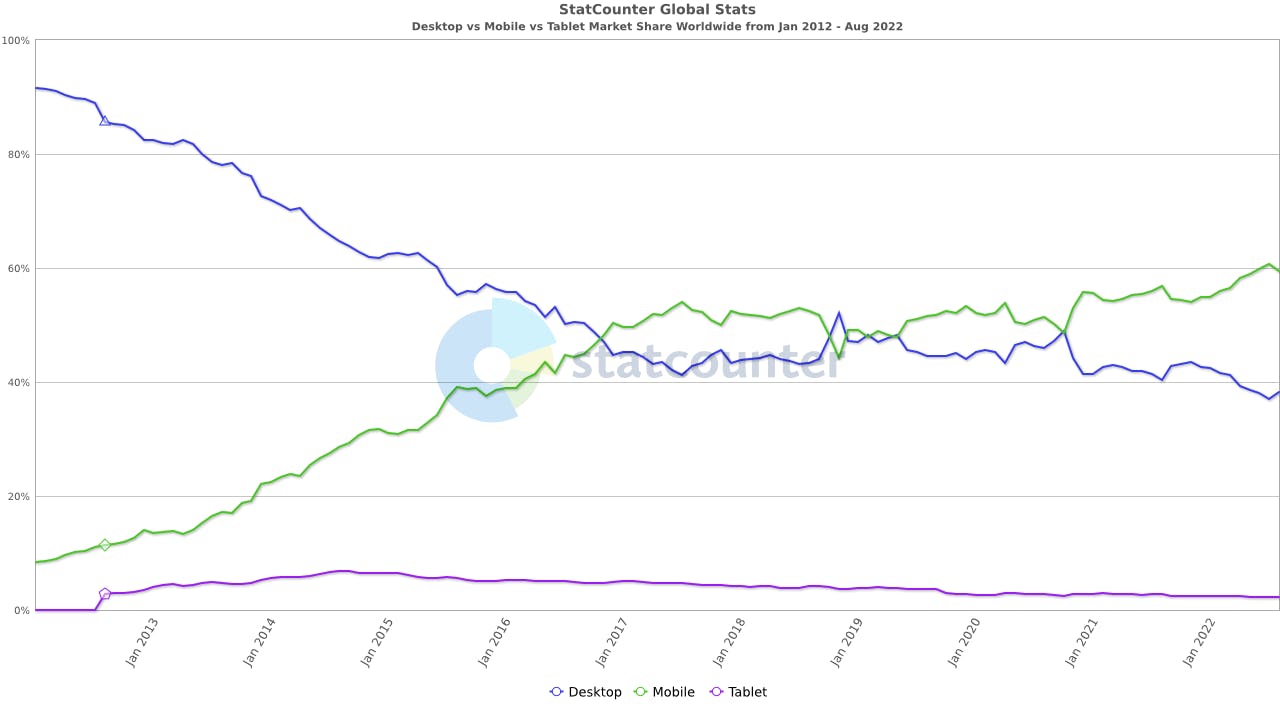
Fourth Attempt: Slack

Remember the internal communication tool that I mentioned earlier? Tiny Speck team required a communication tool for internal sync with team members. At the time there were alternatives like IRC, e-mail, Yammer, Hipchat etc. but Slack was offering something that teams require to work efficiently according to Stewart
Tiny Speck team realize how efficient they work with their internal tool and wanted to keep use in this way wherever they work. Comparing with its competitors:
- IRC did not have the ability to message asynchronously (come back and check/search later your messages) or search at the time.
- E-mail is cumbersome and not transparent
- Yammer by Microsoft forces you to use Office 365
- Neither of them has a central management system where you can integrate with all work-related documents, Docs, Excel, Github etc.
So they developed "linefeed", later named it SLACK in 2013: Searchable Log of All Communication and Knowledge
Success: $27.7 Billion Worth Company
After this long and though journey Tiny Speck (later named Slack) team reached success with their internal tools.
Slack has 18 Million active users and $902m annual revenue according to the July 2020 stats and in the same year Slack is acquired by Salesforce for $27.7 billion (transaction completed & announced in 2021) by Salesforce
Black Swan Theory
 2 game company startup failures and their internal communication tool's success. This reminded me a theory which I would like to share with you.
2 game company startup failures and their internal communication tool's success. This reminded me a theory which I would like to share with you.
Black Swan Theory: An event that can not be predicted by interpreting our dataset and having an astonishing impact. This terminology is mostly used in the economy like crises or global events that occur rarely but have catastrophic results like pandemics. Black swans in nature are seen as rare which is the theory named for.
In his Domain Driven Design training and Core Domain Patterns blog post, Nick Tune uses Black Swan in an interesting way:
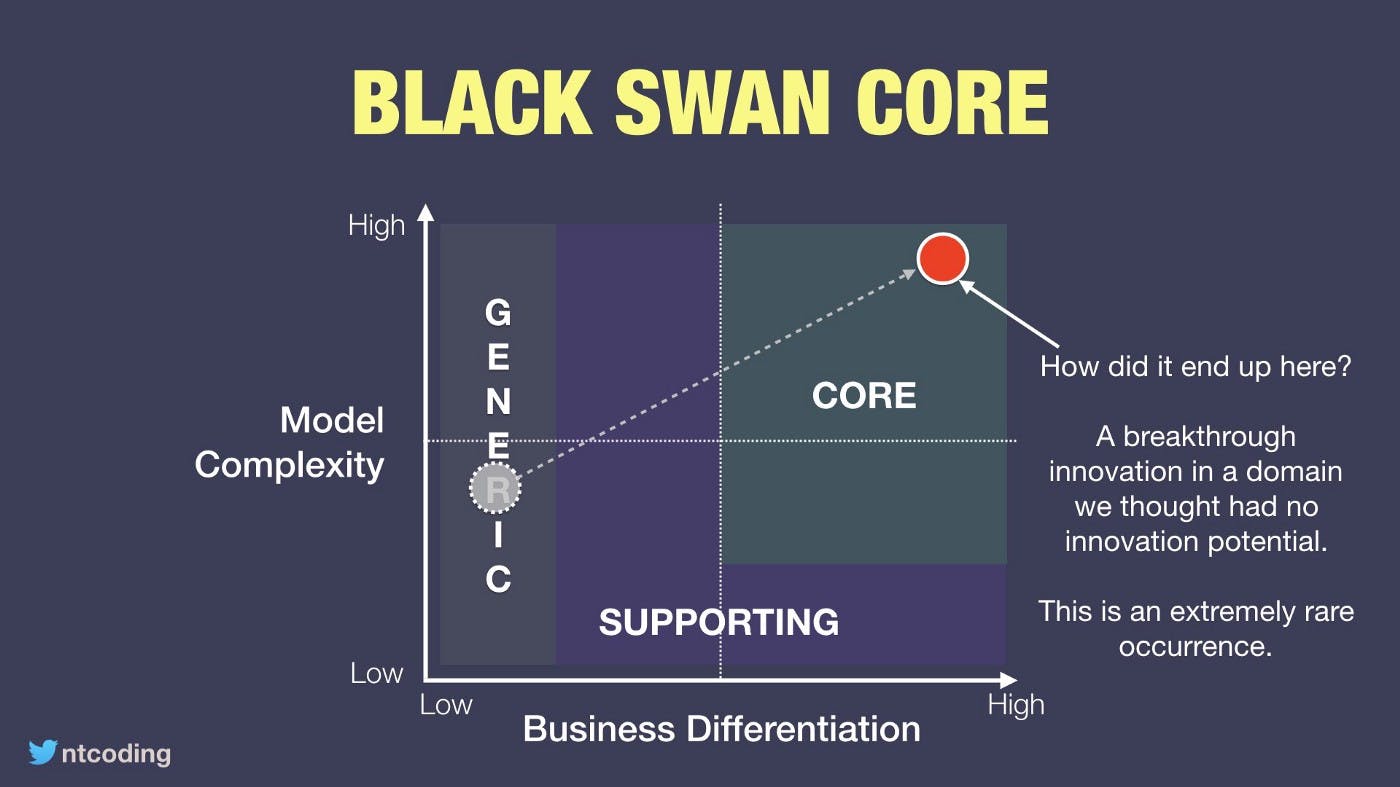
A feature that does not require too much complexity and does not make clear business distinctions could become a core feature of your business, which happens rarely.
Conclusion
There is more detail in Slack's story; market study, feedback & improvement cycles, and business methods. I didn't want to show it as an illusion or I know that there are also more failures than popular success stories. But there are people who need motivation or looking for an idol to inspire themselves and these stories could help, at least it works for me.
- Failed? Be aware of what you're doing well (Game Neverending -> Flickr)
- Succeed? New opportunity for your dream (Flickr -> Glitch)
- Bored? Quit your job for your dream (Glitch -> Slack)
- Competition? Target audience (Slack -> $Billion worth)
Hard choices easy life, easy choices hard life
Bonus
Did you listen to the music I suggest at the beginning? It is Slack's new feature, Huddle's hold music (quick conference/meeting room inside the Slack) which is the music from their failed (really ?) game, Glitch :)

